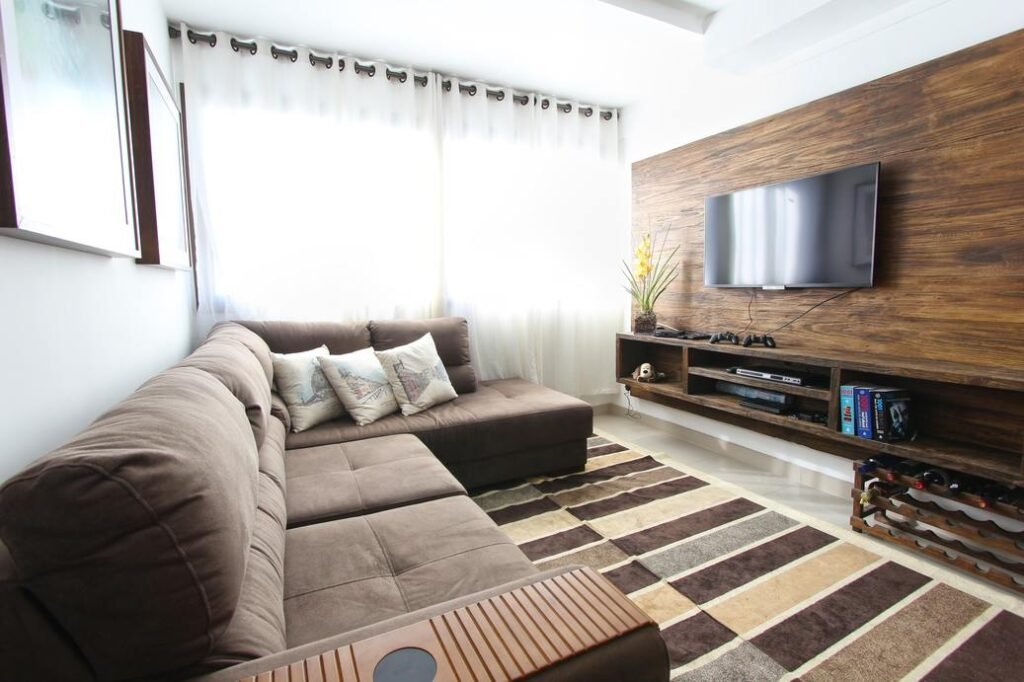- 1.1 Smart home assistants (speaker-based) versus a complete Smart Hub – which is better?
- 1.2 The intelligent lighting system provides an array of lights
- 1.3 Smart thermostats save energy.
- 1.4 Smart Security is a worthwhile perk.
- 1.5 Smart Plugs are resourceful, too.
Creating foundations for turning the home into something innovative can be done by purchasing products compatible with one another. This helps reduce over-expenditure on the acquisition of smart home products.
There are two ways to do so. One can purchase a smart hub that controls everything from a unified interface. The second is dependent on Wi-Fi and working independently.
Top 4 tips for turning an ordinary condo into a smart one
As determined by thesmarthomer.com, turning the home into a smart home will save residents 15% on their electricity bill each month. It is also estimated that the world will have around 73 million smart homes by 2021.
Can luxury condos be converted into smart homes? They sure can, but it depends on some factors. If the apartment is in an old building, permission from the condo board is needed. Newer condominium complexes make it easy to add smart home devices and systems. Yet, some cases require permission, particularly for those living on rent.
Smart home assistants (speaker-based) versus a complete Smart Hub – which is better?
The first thing residents should do when they are converting their home into a smart home is to decide whether a ‘smart home assistant’ (smart speaker) or an intelligent hub would suit their needs best. Some key examples of Smart Home Assistants with speakers having built-in smart hubs are Alexa, Google Home, and Apple HomePod.
A disadvantage when buying the speaker over an intelligent hub device is that it isn’t compatible with all the clever products people choose to purchase. A stand-alone smart hub will do so as it is compatible with all smart home products.
What a Smart Hub can do easily? It will control all the innovative products with a single app. If people go with a smart hub, then some of the best products they can consider purchasing are the Hubitat Elevation Home Automation Hub and the SmartThings HUB.
The intelligent lighting system provides an array of lights
Modern technology has revolutionized LED lighting to the point that it sets the daily lighting schedule, controlling them from outside the homologous customization and the like, which is now made possible thanks to smart home systems.
The bulbs are energy-efficient and last much longer than a regular light bulb. Yet, one thing that should be remembered is that if residents use bulbs that connect to the phone, Wi-Fi, or Bluetooth directly, they won’t be able to control the lights that are out of their range.
The intelligent hub products mentioned earlier can control the lighting almost anywhere.
Smart thermostats save energy.
Installing a smart thermostat is quite popular because of its energy efficiency. Such can be programmed to control the temperatures from the phone at any time of the day. They have become beneficial in the winter by turning them on (or off) an hour or two before residents arrive home. This is done so they can avoid stepping into a hole turned into a freezer and prevent the heating bills from going through the roof. Some smart thermost, like e ‘N, st’ can determine when to close the heating or air conditioning systems, thanks to detection systems that can sense the presence and absence of residents at home. This helps in saving vast amounts of energy.
Smart Security is a worthwhile perk.
The usage of smart home systems brings in intelligent security systems. They protect residents and their loved ones and save them the hassle of bringing their keys everywhere or losing them by accident (resulting in an adverse event).
Smart door locks allow residents to unlock the doors of their residence (home or condo) through a fingerprint or retinal scan, facial recognition, entering a PIN, or the touch of a button on their phones.
Residents can also set up an alarm system when they can either arm or disarm their home using a single app. These locks can be programmed to notify residents if there has been a burglary, an issue, or another incident out of the ordinary. It can even inform them of a potential attempted break-in.
Other smart home security systems that can be purchased are indoor and outdoor surveillance cameras that can be monitored from almost anywhere. Samsung’s Smartthings allows residents to set up a complete security system, including the other systems mentioned earlier.
Smart Plugs are resourceful, too.
These plugs are resourceful as each room in the home has a power outlet. These devices allow users to turn on, , off and even unplug appliances from their smartphones.
The plugs can also work according to preset schedules and can be programmed to do different things at different times. They can make the home look ‘lived-in’ when residents are on vacation. The Kasa Smart Wi-Fi Outdoor Plug has extended the range outdo, too. It is also the only device allowing residents to control two electrical outlets independently.
Conclusion
Turning the condo into a smart home is a resourceful move with numerous benefits. However, with each advantage comes a disadvantage. Smart home systems should be robust so hackers trying to enter the system and make the home vulnerable can be stopped.
Hence, research is needed into this product so that residents can purchase it to fit their needs, lifestyles, and schedules.
